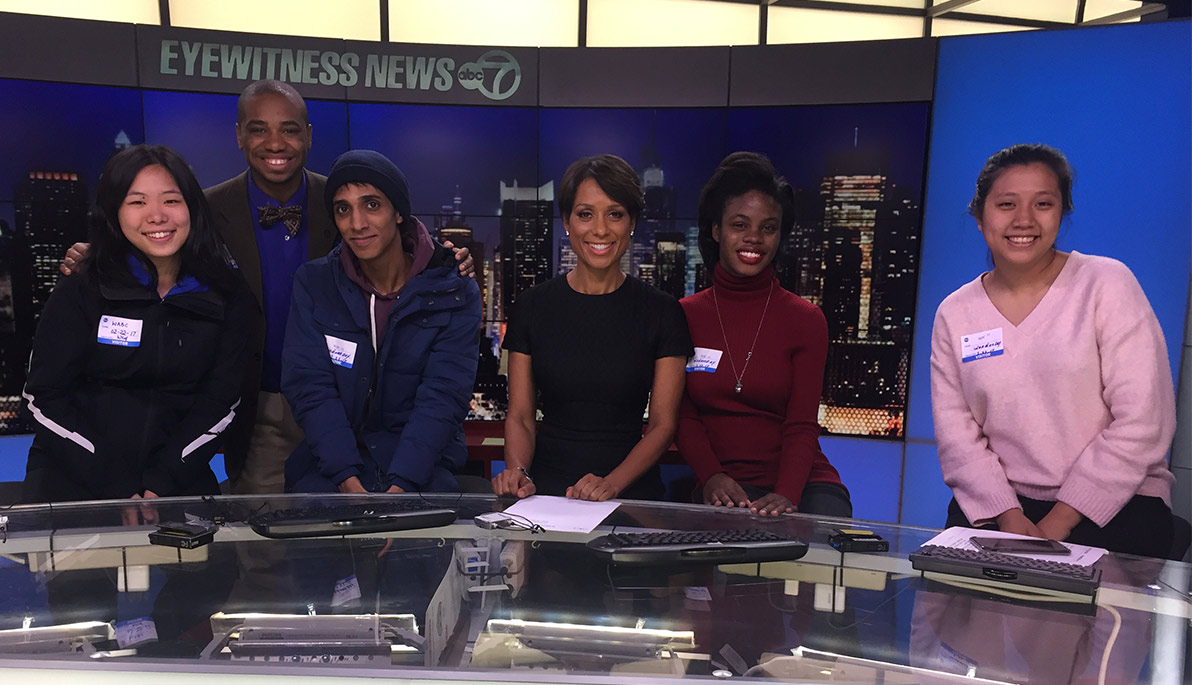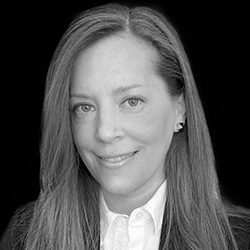News
Five Questions with Adjunct Instructor of Interdisciplinary Studies Jamel Vanderburg
March 2, 2017
Photo: Pictured from left, Wenley Ma, Jamel Vanderburg, Abdullah Alsairai, ABC7 Eyewitness News Reporter Sade Baderinwa, Sheraine Peart, and Khin Hnin Thwe.
The concept of “reporting the truth” has received a great deal of its own press lately. Jamel Vanderburg, M.P.A., adjunct instructor at NYIT School of Interdisciplinary Studies and Education, decided to explore the subject further and took four students in his Foundations of Inquiry class to ABC7 Eyewitness News to learn about the importance of reporting correct information about current events. Vanderburg sat down with The Box to talk about the recent trip, what the students learned, and why it’s imperative they understand the difference between real news and media sensationalism.
Can you explain the goal of your course?
The Foundations of Inquiry class is designed to help students understand the inquiry process and be able to critically analyze different situations in their academic, professional, and personal lives.
Why did you take the students on this trip?
The students went on this trip as a result of a recent class discussion on alternative facts. We have been discussing the importance of building an argument with premises that do not contain fallacies, which can damage an argument or discussion. The definition of “inquiry” is an act of asking for information or an official investigation. While this isn’t a media or journalism class, I thought it was important to show that media and news organizations aren’t blanketed or restricted to one specific subject. Every day, we watch stories that cater to all walks of life. While my class is mostly comprised of architecture majors, along with a few computer science and business majors, my purpose was to show the diversity of news and how it affects our daily lives.
Why is this is an important topic?
Students need to be well aware of current events. Real news, media sensationalism, and sourcing true news needs to be exposed because not knowing the truth about news will hurt true knowledge and insight about today’s current events.
The students met with reporters from ABC7 Eyewitness News. What did they talk about?
They discussed some of the toughest stories that have been covered, including the 2016 election and the 9/11 attacks. The reporters, including Sade Baderinwa, Bill Ritter and Lee Goldberg, explained that you need to take your personal opinion and feelings out of the equation when it comes to presenting information. It is important to state the facts, know your audience, and remember that the viewing public is placing trust in you to give them the news of the day. No matter how big, small, happy, or sad a news report is, it is important to convey the correct information.
What do you hope the students took away from this experience?
The importance of knowing how to differentiate a true story from a story full of false facts. The other takeaway is that what we watch on television every night is a lot more difficult to present than it appears to be. It takes true talent, ability, and honesty in order for reporters to present real and accurate insight into the news.
This interview has been edited and condensed.





